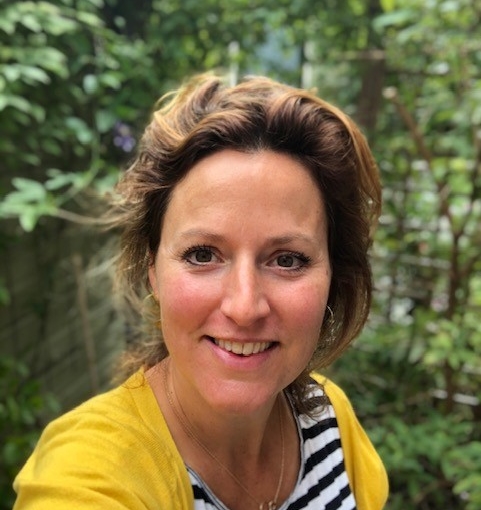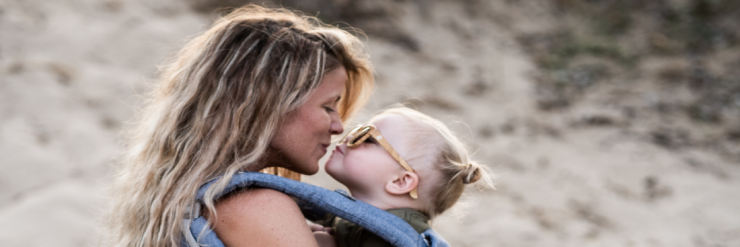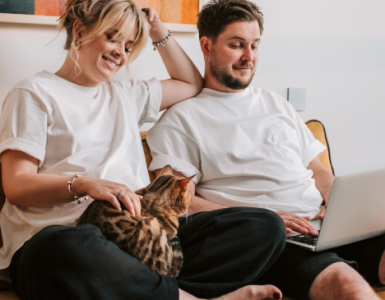In this interview, we spoke to Sanne, a psychology teacher at the University of Amsterdam and the founder of Kinderwensloket. Sanne is a single mother by choice. She has used the experience of her journey towards single parenthood to set up Kinderwensloket and support other people considering having a baby on their own.
What made you want to start Kinderwensloket?

When I had my daughter, Lucy, four years ago, I had many women approach me asking about my story and the journey towards having a child on my own. Just after Lucy was born, I was getting around one call a week from people who found me through friends and wanted advice on becoming a single parent by choice.
I spoke to a lot of women and realised that I could use my experience in raising a child by myself — along with my psychology background — to set up a business supporting other people considering having a baby on their own.
A friend suggested I call the business Kinderwensloket, which translates as ‘Children’s Wish Desk.’
I really enjoy hearing other women’s stories. Sometimes we just sit at the kitchen table or go for a walk in the park and discuss their stories. I recognise the emotions and decisions they are going through, and I can relate.
What are the biggest challenges single women face when having a child on their own?
Making the decision to have a baby on your own is big. There’s nobody to communicate with and make a decision with — it’s all on you. They have to really think about whether that’s what they want. For me, it was more of a feeling, like an intuition, knowing that I had a strong wish to have children.
But I thought about it a lot. I thought about whether it really was something I wanted. How do I want it to work, and what are my options? And what could go wrong? Although it was a feeling, I had to consider all these aspects.
Having somebody to talk to about these things is important, and it can be a big challenge. For me, it was good to speak to someone who isn’t a friend or family member. I had a lot of people around me, but it’s really nice to have somebody impartial who can just be there for you.
What is the biggest question women come to you with?
There are lots of different questions. Questions about ethics, the process, the practicalities — all of these are always on the table. They might ask, for example, about how they should do it — should they go to a sperm bank? Should they go to a hospital? Should they ask their gay best friend to have a child with them? I help them find the answers to these questions, without giving advices.
They often ask what I think about the fact that the child won’t have a father. And that was my main concern when I decided to have a baby by myself, too. I wondered whether it was right for me to decide that for my child. It was a hard thing to think about, and, of course, it still is challenging. I would like Lucy to have a father figure, but it’s not the case!
Many women also ask questions about the practicalities of being a single parent and how I managed with a baby. How many days did I leave Lucy at the daycare, and how many days did I still work? How did I fit that all in and still cook dinner?
There are also discussions about how I’ll answer questions Lucy might have as she gets older. How transparent will I be? However, most of those questions from women come a bit later. Early on, they just want to know if they should do it.
In fact, most conversations start with the question, ‘How did you do it?’ They want to know where to start. Most of the time, I tell them about a little trip I took to Ibiza because that’s where it started for me. That’s where I had a moment of realising that my wish for a child — my kinderwens — mattered more than anything else.
As I tell them my story, they ask more questions. They’ll ask what different ways I tried. And I explored lots of different options, other than just going to the hospital. In Holland, there are many options, but it does vary from country to country.
For example, I tried speed dating, meeting with all kinds of men to find a donor. It was the craziest evening I’ve ever had in my life! It didn’t work for me, but I never make recommendations to women. If you’re looking to have a baby on your own, you have to find the way that suits you. If finding a donor through speed dating works, then that’s great; that can be their way.
How do you support people through Kinderwensloket?
People find it helpful hearing about my experience. But I also ask them how they’re feeling. Sometimes, there can be a lot of sadness, letting ‘Plan A’ go, not having a baby in the way they always thought they might. People can also struggle with worrying about finding a partner in the future – what if they still find a man? When should they act and let Plan A go?
They often feel like they’re running out of time, and that can make people very sad. So that’s also part of it — listening, sharing, and asking questions, supporting them through those emotions. It’s about helping them step forward and gain insight into their own way, how they want to go ahead. And it can be any way, their choice might also be to not become a single mother by choice.
Are there support groups or communities to help single mums/ mums-to-be?
Stichting Meer dan Gewenst provide information evenings and set up the ‘speed dating’ events for people looking to have a baby on their own. And that’s always a good start!
Did you make use of services — like the ones we offer on Parentally — during pregnancy or postpartum?
I didn’t want to go to a group childbirth preparation course because they are really for couples. So I did a one-to-one session, and that really helped me! I also consulted a fysiotherapist and a lactation consultant.
Curious to read more about Sanne? Browse her profile, discover the services she offers and book an appointment with her on Parentally now: Kinderwensloket – Support for single mums-to-be
Related articles: read our interview with Sascha Zeldenrijk, orthomolecular therapist in Vreeland!






Add comment